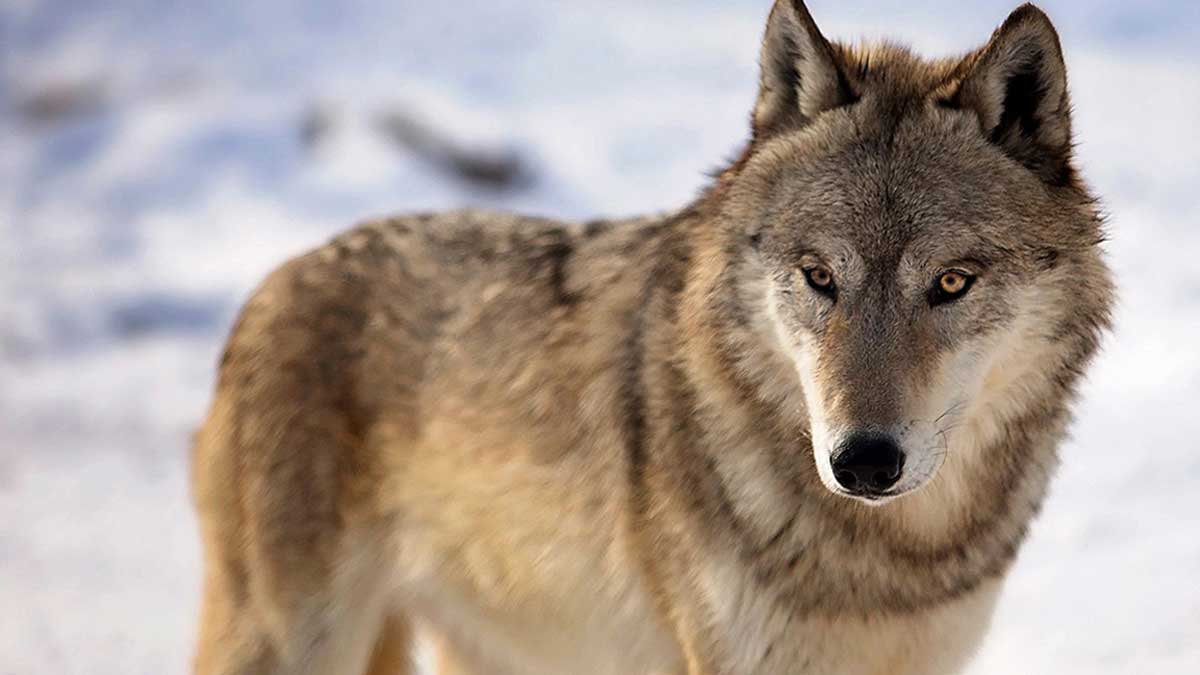With more than 4,000 wolves in the Great Lakes States, the Rocky Mountain Elk Foundation contends that the wolf population is fully recovered and should be delisted with management returned to state authority. RMEF submitted specific comments related to Wisconsin’s proposed wolf management plan.
Among other things, RMEF suggested reinstituting numeric population goals once the species is delisted and expressed concern about wolf predation, particularly on the northern elk herd.
The plan proposes several changes to align the DNR’s wolf management strategy with the current state of the wolf population, the available science and the perspectives of a diverse public, such as:
- Moving away from a single numeric population goal and instead using an adaptive management process focused on balancing the three main objectives (above).
- Reducing harvest registration times and issuing zone-specific wolf harvest permits to improve the department’s ability to effectively meet harvest quotas.
- Adding mechanisms to address localized concerns, including wolf harvest concerns near tribal reservation boundaries and focused wolf harvest in areas with a history of wolf-livestock conflict.
- Revising wolf management zone boundaries to better reflect current wolf distribution and habitat.
(Photo credit: Wisconsin Department of Natural Resources)
Below is RMEF’s official comment letter.

Attn: Wolf Management Plan Comments Wisconsin Department of Natural Resources
101 S. Webster St.
PO Box 7921 Madison, WI 53707-7921
Submitted via email: [email protected]
Dear Secretary Payne,
The Rocky Mountain Elk Foundation (RMEF) appreciates the opportunity to comment on the Wisconsin Wolf Management Plan (Plan). RMEF’s mission is to ensure the future of elk, other wildlife, their habitat and our hunting heritage. We represent more than 225,000 members nationwide with 23 chapters in Wisconsin. Since inception in 1984, RMEF has conserved or enhanced more than 8.6 million acres of North America’s most vital habitat for elk and other wildlife, including nearly 10,000 acres in Wisconsin.
RMEF remains a long-time advocate for state management of wolves, which is in line with the North American Model of Wildlife Conservation. More than 1,100 wolves occupy Wisconsin, stretching across the northern and central portions of the state. Wolves continuously emigrate and immigrate to/from Wisconsin, Minnesota, and Michigan, resulting in a self-sustaining regional population now numbering more than 4,000 and connected to the larger wolf population in Canada. RMEF agrees that the wolf population is fully recovered and encourages additional advocacy to delist wolves and bring them back under state management authority.
With significant interest in helping maintain healthy elk populations in Wisconsin, RMEF offers the following comments specific to the Plan components:
- RMEF appreciates Wisconsin’s strong research program to ensure sound management that supports a wolf season framework.
- RMEF understands the approach to avoid numeric population goals in the current plan. However, RMEF suggests continued monitoring to help keep tabs on the distribution and population trajectory of wolves. In addition, following delisting of the species, RMEF recommends revisiting this approach to consider population thresholds for management.
- RMEF recommends consideration of the healthy regional population of wolves when setting objectives and in estimating populations; the Wisconsin wolf population is not isolated.
- RMEF expresses concern about the wolf predation pressure experienced by elk, particularly the northern herd. In managing the ecological and social impacts of wolves on prey species, RMEF recommends including information on how elk population demographics and distribution may be altered by wolf behavior.
- RMEF supports inclusion of the post-delisting framework for a future wolf season, in anticipation that hunting will again be available as a management tool.
Thank you for the opportunity to review the draft Wisconsin Wolf Management Plan.
Sincerely,
Karie Decker
Director of Wildlife & Habitat
